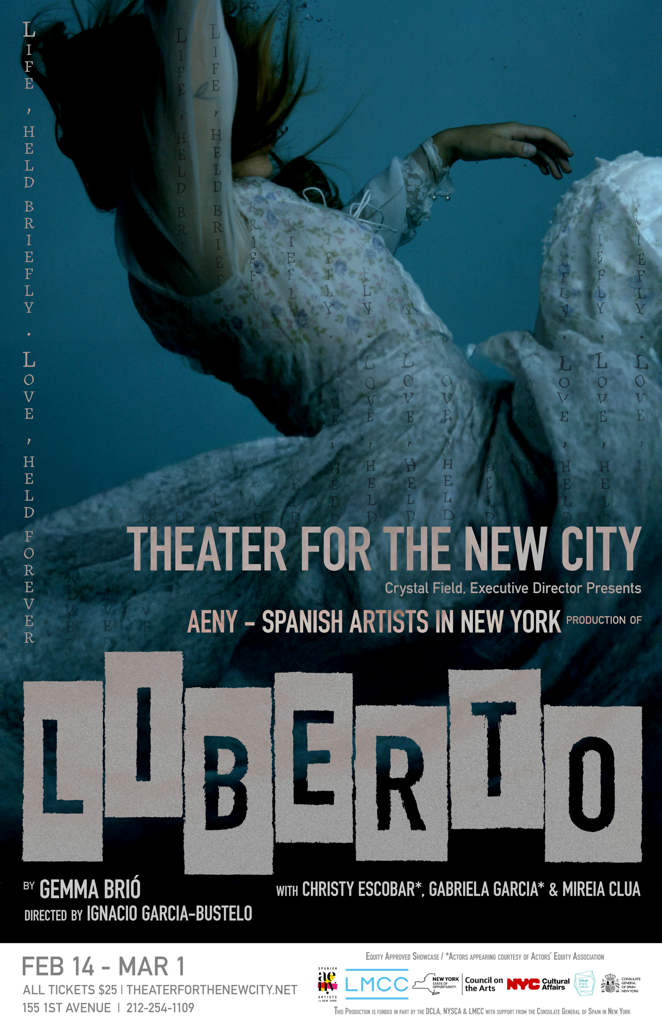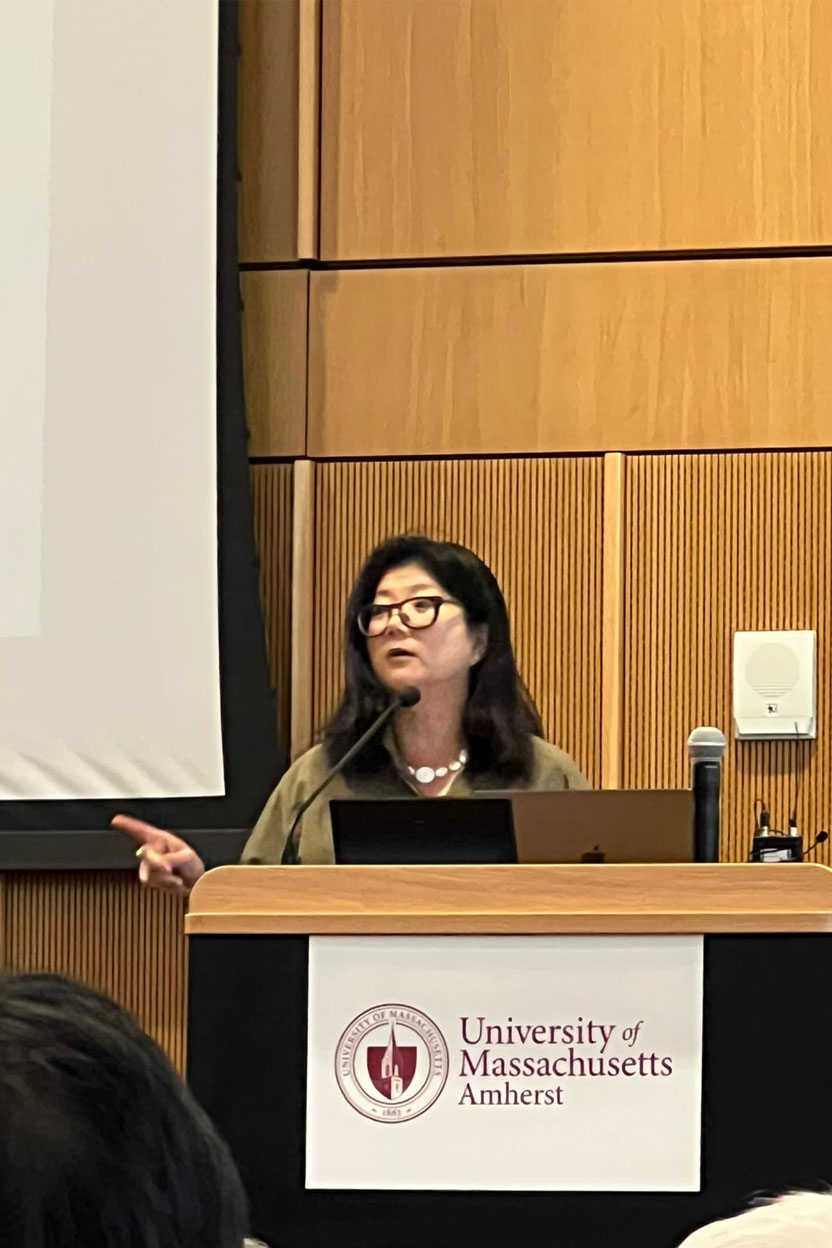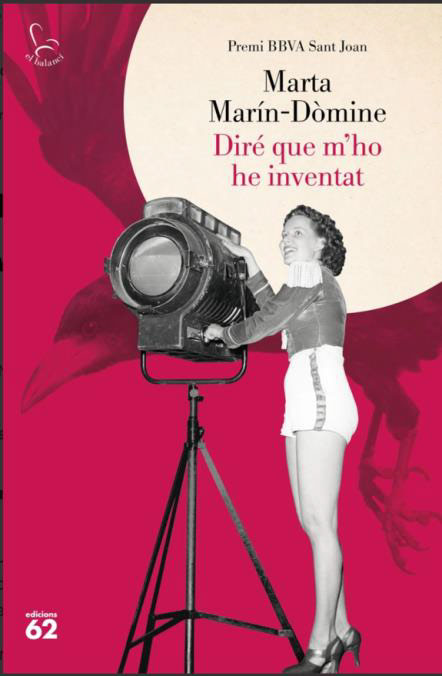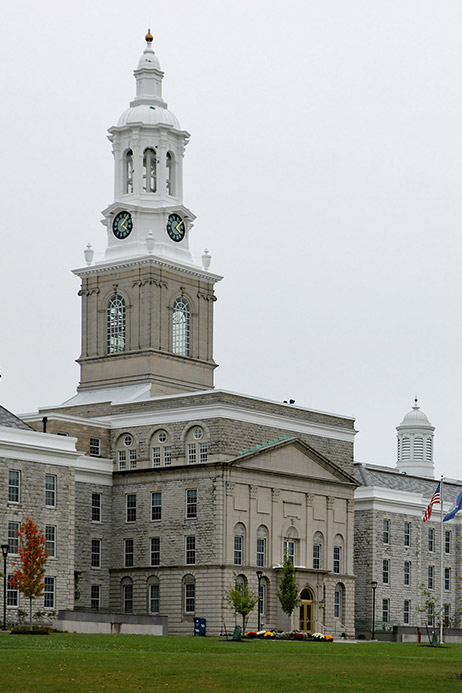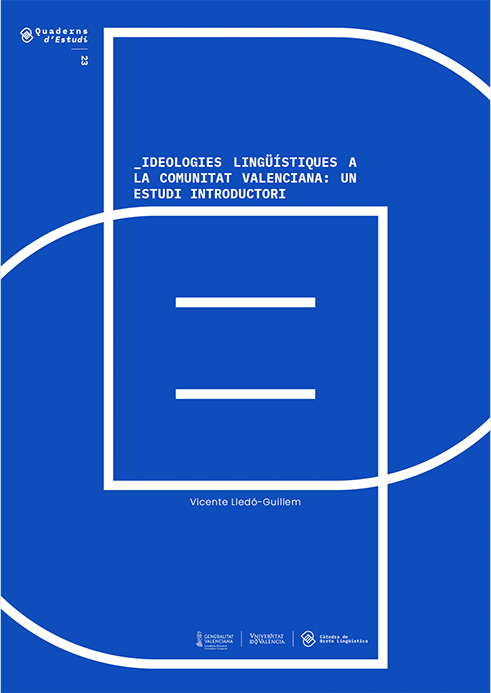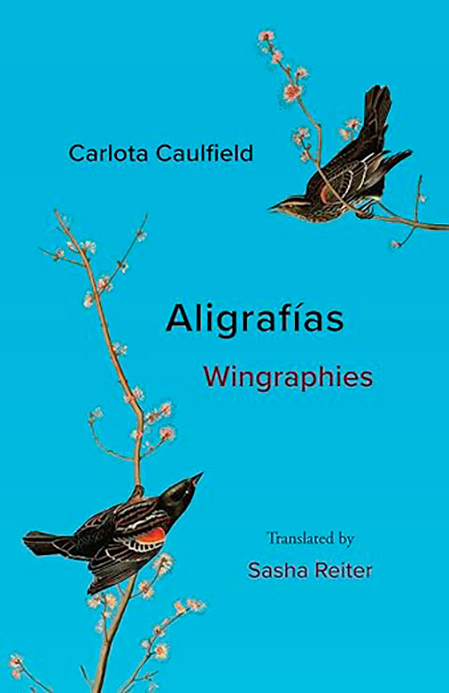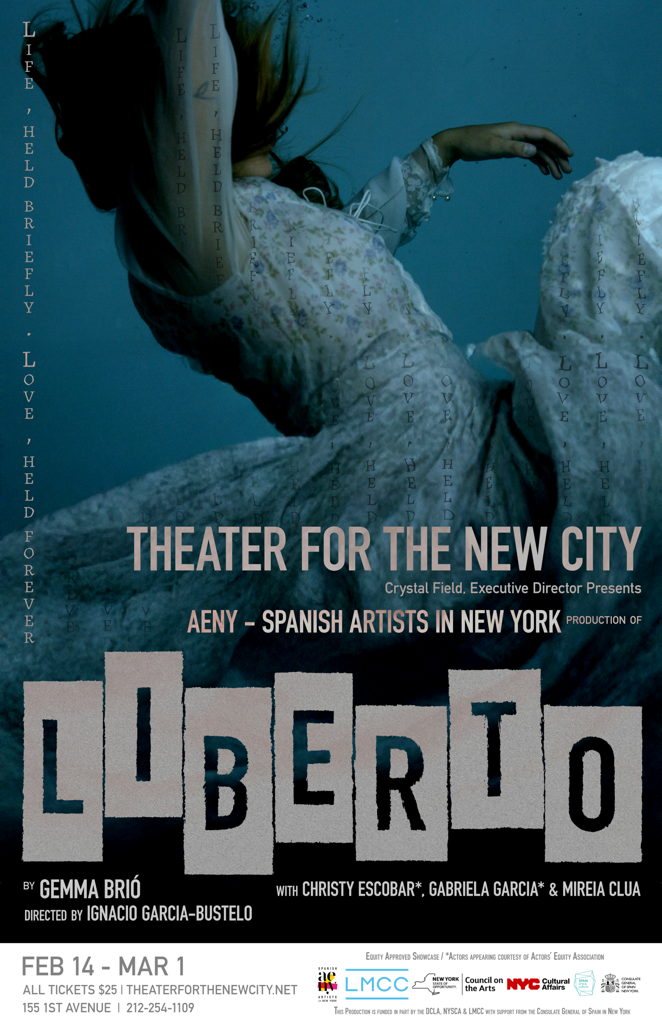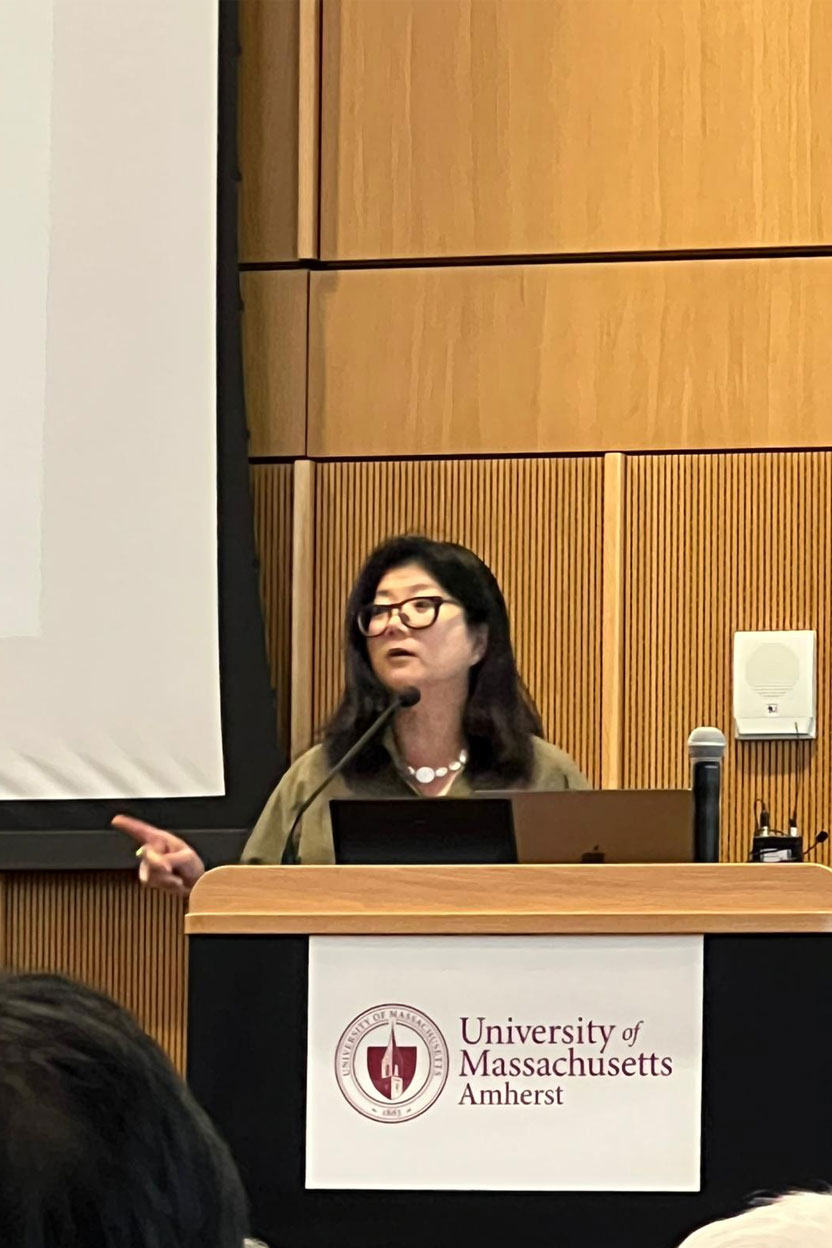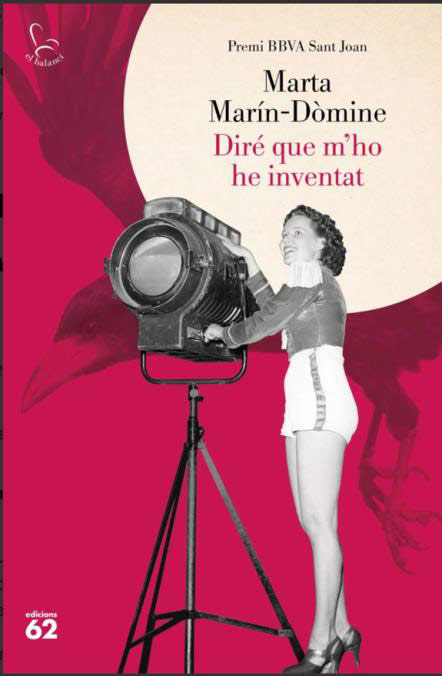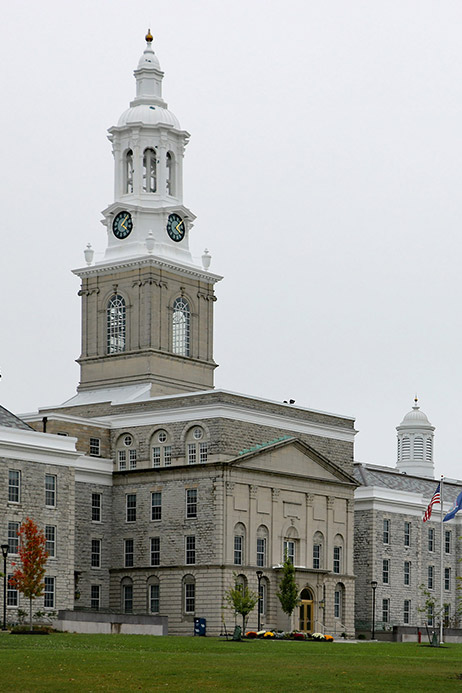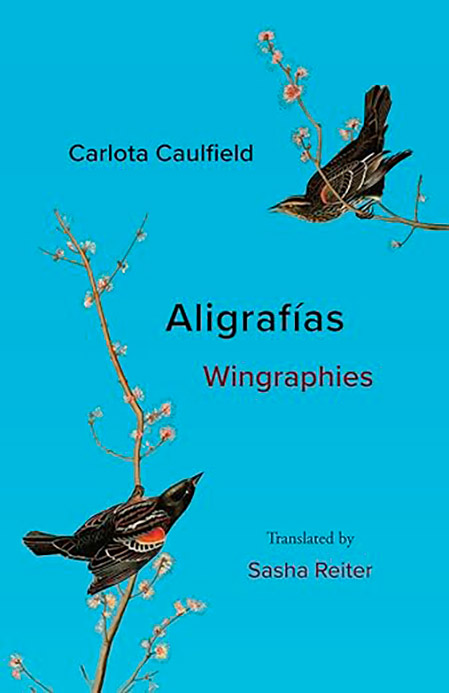NACS Conversations on Catalan Culture
The North American Catalan Society (NACS), with the support of the Institut Ramon Llull, will organize a series of dialogues with specialists in various areas of Catalan culture during the 2020-2021 academic year. The dialogues will be conducted online, by videoconference, and the videos will later be available on the NACS website.
NACS Conversations on Catalan Culture
The North American Catalan Society (NACS), with the support of the Institut Ramon Llull, will organize a series of dialogues with specialists in various areas of Catalan culture during the 2020-2021 academic year. The dialogues will be conducted online, by videoconference, and the videos will later be available on the NACS website.
About Catalan
Catalan is a Romance language spoken by the population of about 10 million people in the east of the Iberian Peninsula (Catalonia, the Balearic Islands, most of the region of Valencia, and the Eastern Strip of Aragon) and the Principality of Andorra. In addition, Catalan is still spoken in the French administrative region of Roussillon, as well as in the city of Alghero on the Italian island of Sardinia.
Like other Romance languages, Catalan developed out of Latin during the Middle Ages. The first documents written in Catalan, a collection of sermons dating from the late 12th or early 13th centuries, are known as the Homilies of Organyà. Catalan has been an important language for everyday use and literary expression in the eastern territories of the Iberian Peninsula from medieval times up to today. Following a period of political and cultural hegemony lasting until the 16th century, literary expression in Catalan suffered a decline until the 19th century when, propelled by Romantic ideals, the literary use of the language underwent a renaissance (a period known in Catalan as the Renaixença).
Today, Catalan and Spanish are the co-official languages of the Catalan-speaking territories in the Iberian Peninsula, and it is the only official language of Andorra.
About Catalan
Catalan is a Romance language spoken by the population of about 10 million people in the east of the Iberian Peninsula (Catalonia, the Balearic Islands, most of the region of Valencia, and the Eastern Strip of Aragon) and the Principality of Andorra. In addition, Catalan is still spoken in the French administrative region of Roussillon, as well as in the city of Alghero on the Italian island of Sardinia.
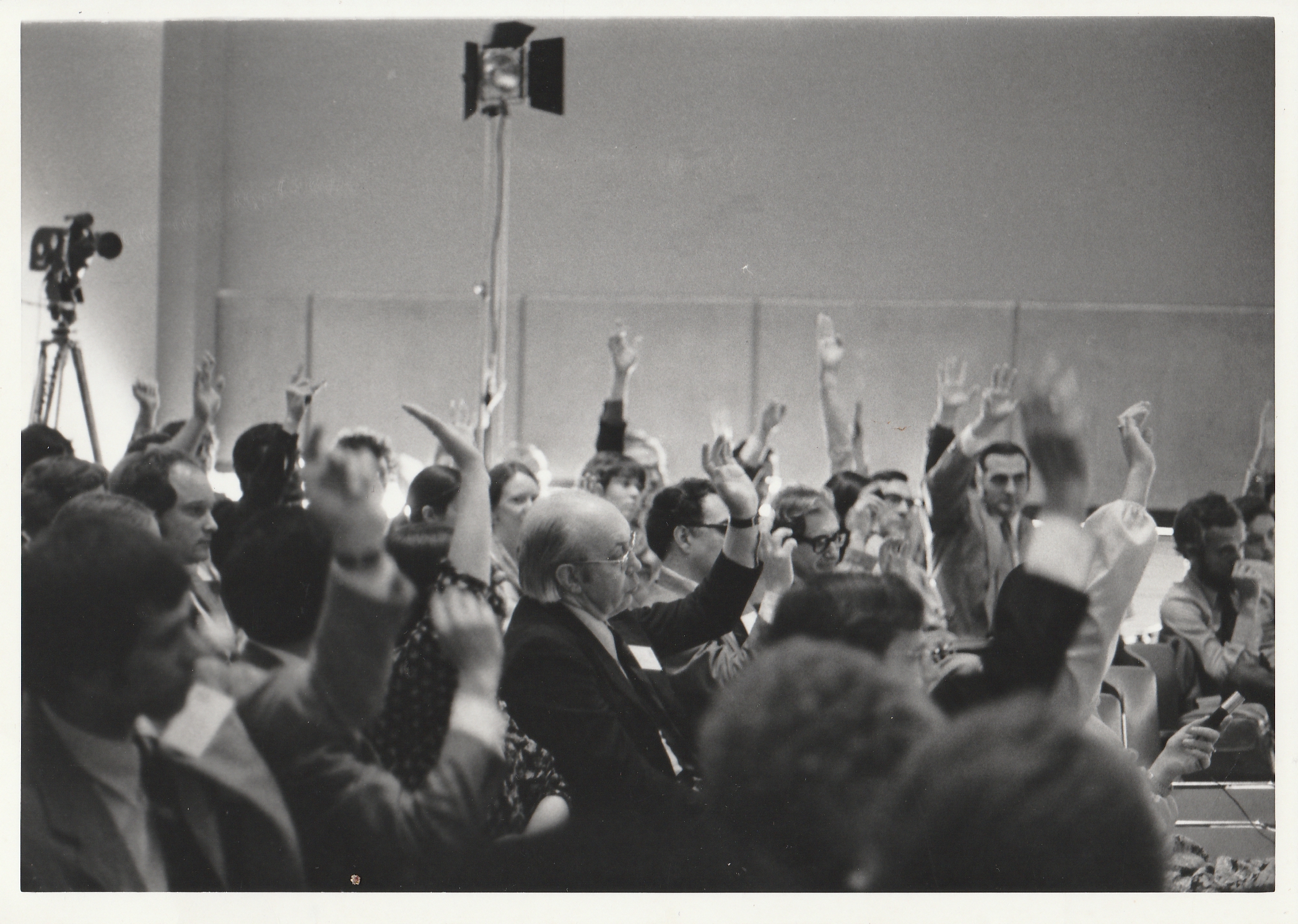
Assamblea fundacional del primer col·loqui.
University of Illinois at Urbana-Champaign.
HISTÒRIA
HISTORY
The North American Catalan Society (NACS), founded in 1978, is a professional association of scholars, students, and people with a general interest in any aspect of Catalan culture (literature, linguistics, film, visual and performing arts, history, and philosophy, among other disciplines). NACS is committed to encouraging and advancing the study of Catalan language and culture in the North American academy. It seeks to foster greater visibility for and dissemination of scholarship in the field of Catalan Studies and serves as a central point of reference, as well as a public voice, for a network of scholars in this field. To this end, the NACS holds biennial colloquia (along with occasional smaller symposia) and publishes the Catalan Review: International Journal of Catalan Culture.
HISTÒRIA
HISTORY
The North American Catalan Society (NACS), founded in 1978, is a professional association of scholars, students, and people with a general interest in any aspect of Catalan culture (literature, linguistics, film, visual and performing arts, history, and philosophy, among other disciplines). NACS is committed to encouraging and advancing the study of Catalan language and culture in the North American academy. It seeks to foster greater visibility for and dissemination of scholarship in the field of Catalan Studies and serves as a central point of reference, as well as a public voice, for a network of scholars in this field. To this end, the NACS holds biennial colloquia (along with occasional smaller symposia) and publishes the Catalan Review: International Journal of Catalan Culture.

Assamblea fundacional del primer col·loqui.
University of Illinois at Urbana-Champaign.
call for papers
Colloquium NACS 2026
20th International Colloquium of the North American Catalan Society
University at Buffalo, NY
April 16-18, 2026
call for papers
Colloquium NACS 2026
20th International Colloquium of the North American Catalan Society
University at Buffalo, NY
April 16-18, 2026
ESTUDIS CATALANS
CATALAN STUDIES
Catalan Studies encompasses a wide variety of fields of intellectual inquiry and production, including history, linguistics, literature, cultural studies, anthropology, sociology, political science, the history of art and architecture, and philosophy, with a focus on the Catalan-speaking areas.
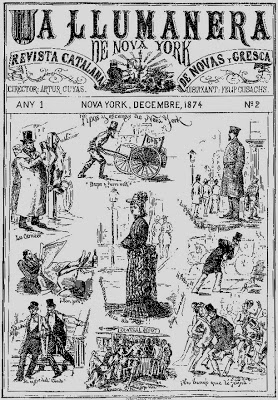
ESTUDIS CATALANS
CATALAN STUDIES
Catalan Studies encompasses a wide variety of fields of intellectual inquiry and production, including history, linguistics, literature, cultural studies, anthropology, sociology, political science, the history of art and architecture, and philosophy, with a focus on the Catalan-speaking areas.

PREMIS NACS
NACS AWARDS
The object of the NACS prize is to recognize and promote academic work devoted to the study of the society, the language, and/or the culture of the Catalan-speaking territories from all areas of the Humanities.
PREMIS NACS
NACS AWARS
The object of the NACS prize is to recognize and promote academic work devoted to the study of the society, the language, and/or the culture of the Catalan-speaking territories from all areas of the Humanities.
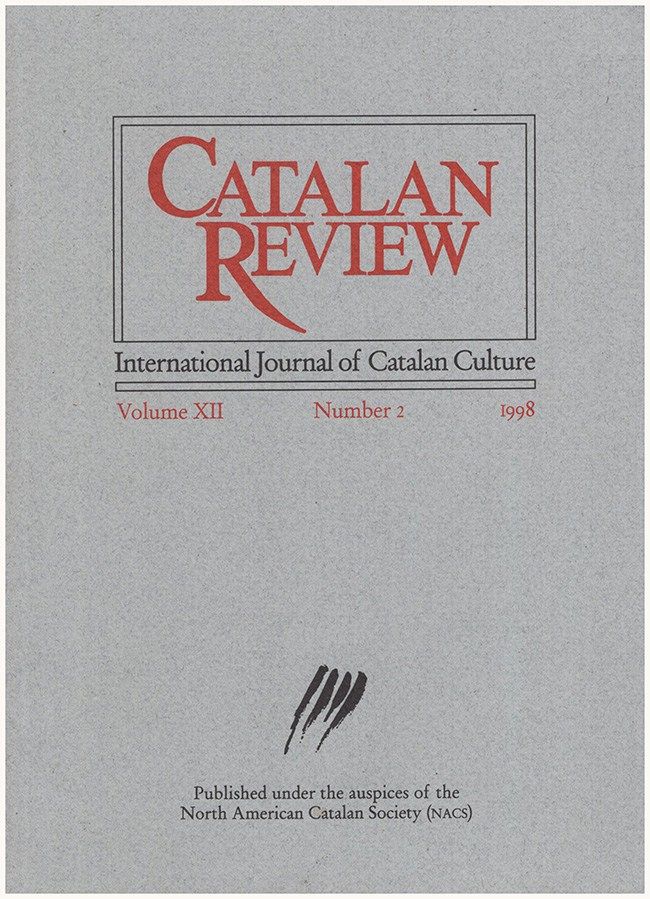
Number 2 of Catalan Review magazine.
MAGAZINE
CATALAN REVIEW
Catalan Review was launched in 1986, eight years after the founding of the North American Catalan Society in 1978. CR is an international journal devoted to Catalan studies. Under the auspices of the NACS, the first issue of the journal, edited by Manuel Duran and Josep Roca-Pons.
MAGAZINE
CATALAN REVIEW
Catalan Review was launched in 1986, eight years after the founding of the North American Catalan Society in 1978. CR is an international journal devoted to Catalan studies. Under the auspices of the NACS, the first issue of the journal, edited by Manuel Duran and Josep Roca-Pons.

Number 2 of Catalan Review magazine.
AFFILIATION TO THE NACS IS BY NATURAL YEAR. THE MEMBERS RECEIVE THE CATALAN REVIEW MAGAZINE, PERIODIC INFORMATION OF THE ACTIVITIES OF THE ASSOCIATION AND ADS RELATED TO CATALAN STUDIES.
FER-SE SOCI
MEMBERSHIP
FER-SE SOCI
MEMBERSHIP
AFFILIATION TO THE NACS IS BY NATURAL YEAR. THE MEMBERS RECEIVE THE CATALAN REVIEW MAGAZINE, PERIODIC INFORMATION OF THE ACTIVITIES OF THE ASSOCIATION AND ADS RELATED TO CATALAN STUDIES..
art
ART COLLECTION
The NACS art collection is made up of works donated by a group of artists from the Catalan-speaking territories soon after the founding of the North American Catalan Society, in support of its mission.

Miquel Barcelo, Untitled, 1981, acrylic and oil on pasteboard, 75x105cm (29 ½ x 41 3/8 in.) L.WA02305
art
ART COLLECTION
The NACS art collection is made up of works donated by a group of artists from the Catalan-speaking territories soon after the founding of the North American Catalan Society, in support of its mission.

Miquel Barcelo, Untitled, 1981, acrylic and oil on pasteboard, 75x105cm (29 ½ x 41 3/8 in.) L.WA02305
CONTACT US
NORTH AMERICAN
CATALAN SOCIETY
secretarinacs@gmail.com

